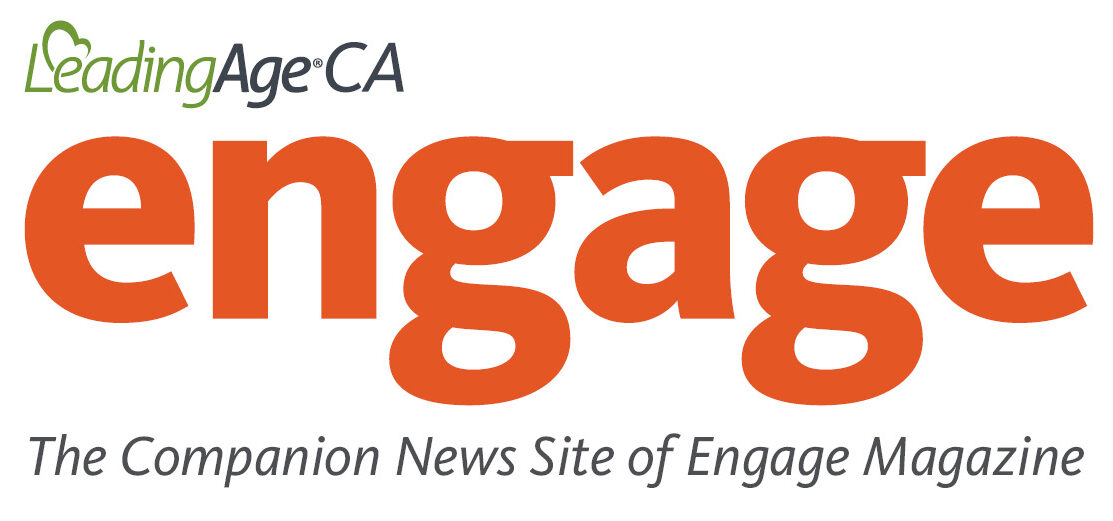By Kristin Cole, AllyAlign Health. Expert Contributor: Dr. Tina Shenouda, Chief Medical Director, AllyAlign Health
Human beings are social creatures. Our connection to others enables us to survive and thrive. People who engage in meaningful, productive activities with others tend to live longer, are happier, and have a sense of purpose. These activities help maintain well-being and improve cognitive function. Conversely, a lack of connection is linked with weakened immunity and inflammation, which leaves us vulnerable to a variety of physical and mental conditions. Dr. Tina Shenouda, Chief Medical Director for AllyAlign Health gives a personal account of her experience with cognitive impairment and the importance of maintaining connection.
“In an interesting twist of fate, a physician who worked in senior housing facilities has recently succumbed to the very disease he treated for 60 years. This physician is my father, who developed COVID-19 last year in the healthcare setting. Overnight, he went from being a six-day per week hospitalist to barely recognizing close family members. My brother and I, both physicians, were devastated to see the detrimental switch of 100 percent mental acuity to mentally ‘falling off a cliff.’ Despite devoting decades to providing care, overnight he became the patient.
Our family has had to acclimate to this new version of the same person. Loneliness is one of the factors known to hasten mortality, and I understand the importance of socialization. His daily routine is built around this understanding. The fact that he is unaware of the need for vital connection, notwithstanding.
My father had an extraordinary global intelligence that was unrivaled. He could discuss subjects from Middle Eastern politics to the plight of Syrian refugees and cutting-edge medical research developments. He read voraciously, always a student and willing to learn at a deeper, more profound level. The person before covid and the person today were incongruous to each other.
Today, my father enjoys laughing and joking in Arabic, but can’t remember the current president. He adores opera, especially Luciano Pavarotti. Senses are vitally important in this place, from sound to touch and taste. These are all vital component parts of being alive. We arrange informal caregiver cookery classes as often as we can so that he can see different colors and experiences. The most subtle paths to connection can be the most profound.
In the myriad spectrum of mild to severe cognitive impairment, the experience has shown me that connection is the key – connecting to the patient where they are in their level of cognitive ability and physical state. My father is ‘falling off the cliff’ when he misses more than 24 hours of human connection. Connection is the great bulwark against the tide of loneliness and social isolation.”
Currently more than 55 million people are living with dementia worldwide, and there are 10 million new cases each year. With these staggering numbers, many have been personally touched by this disease.
Dr. Shenouda’s testimony reinforces how personal connection increases quality of life in someone living with dementia, yet many lack this vital stimulation which can fast-track a devastating cognitive decline.
Compared to adults without dementia, persons with dementia visit the emergency department more frequently, are hospitalized more often, are re-hospitalized at higher rates, and are at higher risk of death in the six months after a visit to the emergency department. Preparing for a crisis before it occurs can be an important step caregivers and community providers can take to ensure these residents receive optimal care.
Residents with dementia have more complex care needs, longer periods of disability, and heavy reliance on the support of their caregivers. You can elevate the quality of life for these residents by implementing evidence-based practices that provide meaningful support, such as those offered through a value-based care partnership.
Align Senior Care (ASC) provides value-based care solutions through chronic care special needs plans (C-SNPs) offered to seniors living with dementia. We support communities with additional resources through a proactive, high-touch model of care that focuses on prevention. A partnership with ASC helps residents maintain personal connections by offering a dedicated care team, additional visits, on-site support, and transparent communication. Align Senior Care is more than a health plan: It’s peace of mind, and to us, it’s personal.
Learn more about AllyAign Health: allyalign.com




